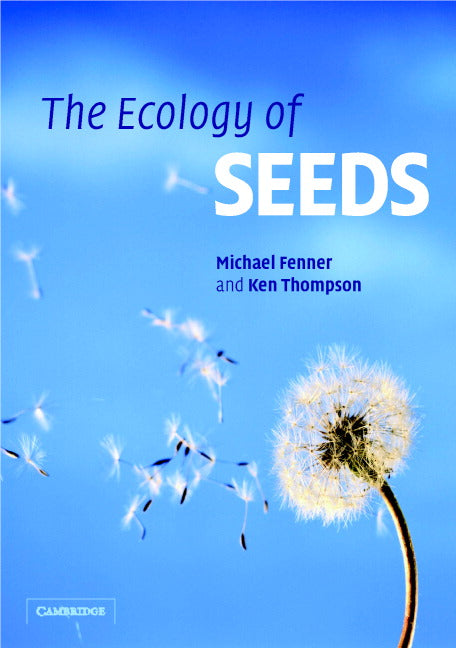Freshly Printed - allow 8 days lead
Couldn't load pickup availability
The Ecology of Seeds
A succinct review of the ecological aspects of seed biology.
Michael Fenner (Author), Ken Thompson (Author)
9780521653688, Cambridge University Press
Paperback, published 24 February 2005
264 pages, 48 b/w illus. 2 tables
24.9 x 16.6 x 1.4 cm, 0.43 kg
'A concise synthesis of seed ecology, this book makes an excellent undergraduate text. Extensive referencing and evaluation of current debates also makes it valuable for postgraduates and a welcome refresher for seasoned practitioners.' Journal of Experimental Agriculture
What determines the number and size of the seeds produced by a plant? How often should it reproduce them? How often should a plant produce them? Why and how are seeds dispersed, and what are the implications for the diversity and composition of vegetation? These are just some of the questions tackled in this wide-ranging review of the role of seeds in the ecology of plants. The authors bring together information on the ecological aspects of seed biology, starting with a consideration of reproductive strategies in seed plants and progressing through the life cycle, covering seed maturation, dispersal, storage in the soil, dormancy, germination, seedling establishment, and regeneration in the field. The text encompasses a wide range of concepts of general relevance to plant ecology, reflecting the central role that the study of seed ecology has played in elucidating many fundamental aspects of plant community function.
Preface
1. Life histories, reproductive strategies and allocation
2. Pre-dispersal hazards
3. Seed dispersal
4. Soil seed banks
5. Seed dormancy
6. Germination
7. Post-dispersal hazards
8. Seedling establishment
9. Gaps, regeneration and diversity
References
Index.
Subject Areas: Plant ecology [PSTS], Ecological science, the Biosphere [PSAF]


